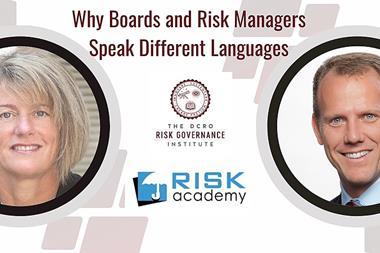European companies who send employees to dangerous parts of the world are imprudent if they operate without an adequate kidnap and ransom (K&R) insurance policy
European companies who send employees to dangerous parts of the world are imprudent if they operate without an adequate kidnap and ransom (K&R) insurance policy, said Leslie Edwards, a kidnap response specialist with Clayton Consultants.
Edwards was one of the speakers at yesterday’s workshop on ‘Employee mobility risk management in the global economy’. He said that firms who fail to train their employees about the dangers posed by kidnappers or take steps to get them released safely and quickly if they are a victim, are opening themselves up to potentially damaging litigation.
‘Employers in the US are more aware of the liability issues – in terms of employees suing if a crisis is not handled correctly – but I expect European employers to move in the same direction,’ commented Edwards.
He warned that current kidnap hotspots include Mexico, Iran, Nigeria, and India where police estimate approximately 20,000 incidents each year. ‘Nigeria has kept us very busy,’ said Edwards, ‘50 foreigners were kidnapped in 2006 and so far this year 150 incidents have occurred.
As security is tightened and foreign companies begin removing their employees from the country the kidnappers have started to target Nigerian employees of foreign multinationals or rich Nigerians.’
The majority of accident and health insurance products do not carry a kidnap element, warned Edwards. ‘I know some sell accident and health insurance policies that have K&R coverage embedded, but those that do usually have a limit on the payout of consultant fees.’ Edwards advised employers to buy a separate K&R policy to cover their staff
who travel to high risk areas. He commented: ‘The K&R policy usually includes consultant services – that’s the true value of the insurance product.
I would advise buyers to meet with the consultant that comes with that product and ensure they are reputable.’ For Edwards, training on techniques to avoid kidnappings is important. ‘We believe the best tool for limiting the impact of a kidnap situation is running a simulation for the corporate crisis team,’ he said.




















No comments yet